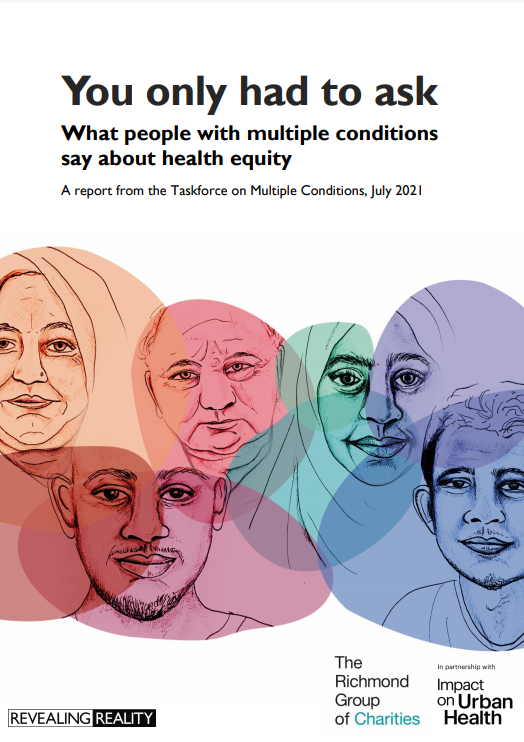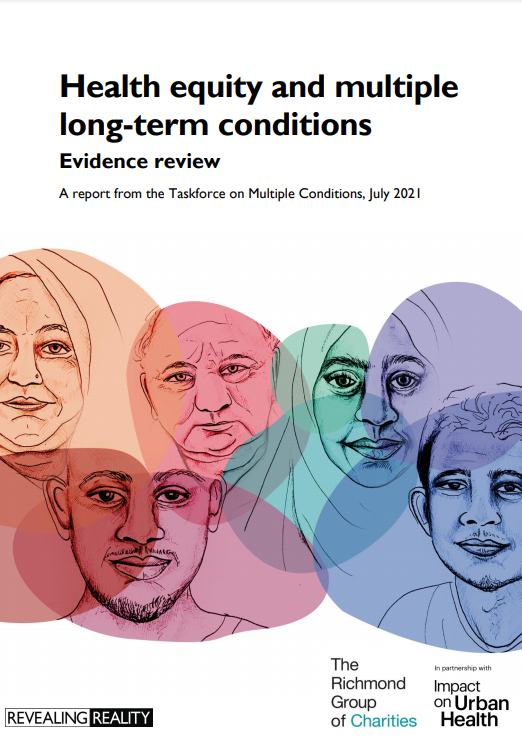Richmond Group of Charities
Our current healthcare system requires people to have a certain level of ability, agency and confidence – to push for the right care and manage their own health outside of medical intervention. But many people aren’t in this position.
‘You only had to ask’ – a new report for the Richmond Group of Charities – has been published. Our research focussed on people with Multiple Long-Term Conditions who are also facing inequity and disadvantage in their lives. The people we spoke to were often living in poverty, working tiring manual jobs, housed in unsuitable accommodation, had low levels of health literacy, spoke English as a second language or didn’t speak English at all. Because of this:
- Many had ingrained behaviours around their health, diet and exercise, which negatively impacted their conditions, but they struggled to break.
- They often didn’t have the confidence to ask for the support they needed and sometimes accepted sub-par care
- They struggled to know how to manage their conditions beyond medical interventions.
But the healthcare system was not effectively supporting individuals to overcome these problems. A one-size fits all service, which you might expect to lead to equal access and outcomes, is in fact making it much harder for the people most in need of support to access, and make best use of, the care they need.
“They don’t explain. They just tell you.”
Ibrahim, 70, Bradford
Many hadn’t been helped to even understand what their conditions were, let alone how to effectively manage them.
The way different parts of the healthcare system communicate with people plays a huge part in this: healthcare professionals are authoritative but not necessarily approachable; communications, written or spoken are full of medical jargon; and many people reported feeling pressure to end their appointments as quickly as possible to not waste professionals’ time.
The healthcare system, and the professionals within it, may have many of the answers people need but they don’t make conversation easy. This might be okay for people with the confidence to say, “can you explain that again” or ask, “what else can I do to manage my condition”, but for the people who don’t, it leads to deference to professionals and a sense of disconnection from their own health.
Far more needs to be done to give these individuals more agency over their own health outcomes – to get them to a position of confidence and effective self-management – through increased support, holistic care and community engagement, so that our healthcare system can work for the many people who are currently being left behind.


